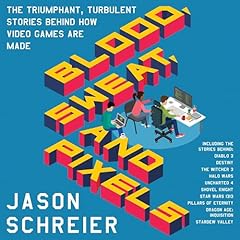
Human Errors
A Panorama of Our Glitches, from Pointless Bones to Broken Genes
No se pudo agregar al carrito
Add to Cart failed.
Error al Agregar a Lista de Deseos.
Error al eliminar de la lista de deseos.
Error al añadir a tu biblioteca
Error al seguir el podcast
Error al dejar de seguir el podcast
Obtén 3 meses por US$0.99 al mes
 Exclusivo para miembros Prime: ¿Nuevo en Audible? Obtén 2 audiolibros gratis con tu prueba.
Exclusivo para miembros Prime: ¿Nuevo en Audible? Obtén 2 audiolibros gratis con tu prueba.
Compra ahora por $18.63
-
Narrado por:
-
L.J. Ganser
-
De:
-
Nathan H. Lents
We humans like to think of ourselves as highly evolved creatures. But if we are supposedly evolution's greatest creation, why do we have such bad knees? Why do we catch head colds so often - 200 times more often than a dog does? How come our wrists have so many useless bones? Why is the vast majority of our genetic code pointless? And are we really supposed to swallow and breathe through the same narrow tube? Surely there's been some kind of mistake.
As professor of biology Nathan H. Lents explains in Human Errors, our evolutionary history is nothing if not a litany of mistakes, each more entertaining and enlightening than the last. The human body is one big pile of compromises. But that is also a testament to our greatness: as Lents shows, humans have so many design flaws precisely because we are very, very good at getting around them.
A rollicking, deeply informative tour of humans' four billion year-long evolutionary saga, Human Errors both celebrates our imperfections and offers an unconventional accounting of the cost of our success.
©2018 Nathan H. Lents (P)2018 HighBridge, a division of Recorded BooksLos oyentes también disfrutaron:




















Las personas que vieron esto también vieron:


















Excellent audio book.
Se ha producido un error. Vuelve a intentarlo dentro de unos minutos.
I tried mightily, but I just couldn't finish this book.
I am pretty much alone here in my negative review, but when I listened to the chapter on nutrition and heard what the author said about vegetarians and combining foods (a theory that has been debunked over the years) and other nutritional ideas that promote the eating of animal flesh,
That propaganda, along with lots of angst for people who can't conceive (nature and adoption, anyone?) and no mention of the terrible effects of overpopulation on our planet, along with long passages about how hard it is for humans to conceive and therefore how sad, made it difficult for me to continue listening.
Perhaps the rest of this book would have assuaged my negative opinions, but I didn't feel like continuing especially with the condescending tone of the narrator.
UPDATE:
I finished listening and I'm glad I did. Even though I still agree with what I stated above, the rest of the book really won me over. It proves I might always try to finish listening. Well, almost always.
The self-righteous and pretentious tone softened to explain some very enlightening things about human minds. This part was an in-depth look at cultural, sociological and hereditary aspects of the brain. This was worth the whole book.
Changing the stars from one to three!
Updated Review
Se ha producido un error. Vuelve a intentarlo dentro de unos minutos.
Great read with one little caveat.
Se ha producido un error. Vuelve a intentarlo dentro de unos minutos.
Really enjoyed this one.
Se ha producido un error. Vuelve a intentarlo dentro de unos minutos.
Others are even more frustrating. The mutation that causes sickle cell anemia causes a devastating, painful, deadly disease--if you get two copies of that gene, one each from father and mother. It ought to have been selected against long ago! Oh, except for one inconvenient fact. If you get only one copy of the disease, you have a higher than normal resistance to malaria. Malaria can also debilitate and kill you. Someone who has one copy of the sickle cell gene doesn't get sickle cell, and is less likely to get malaria, and more likely to survive malaria if they do. In regions where malaria is a major problem, people with one copy of the sickle cell gene will be more likely to live long enough to have more offspring, and thus more descendants--even though some of them will have sickle cell anemia due to getting two copies of the gene.
Nor are we really fully adapted to walking upright, or to giving birth to children with such large brains. Our babies are born several months earlier than they "should" be, based on the degree of development they have at birth, even compared to our closest relatives, the common chimpanzee and the bonobo.
I can't do credit to Lents' writing of this, or to L.J. Ganser's reading of it. It's informative and enjoyable.
Recommended.
I bought this audiobook.
Entertaining look at our glitches and flaws
Se ha producido un error. Vuelve a intentarlo dentro de unos minutos.


